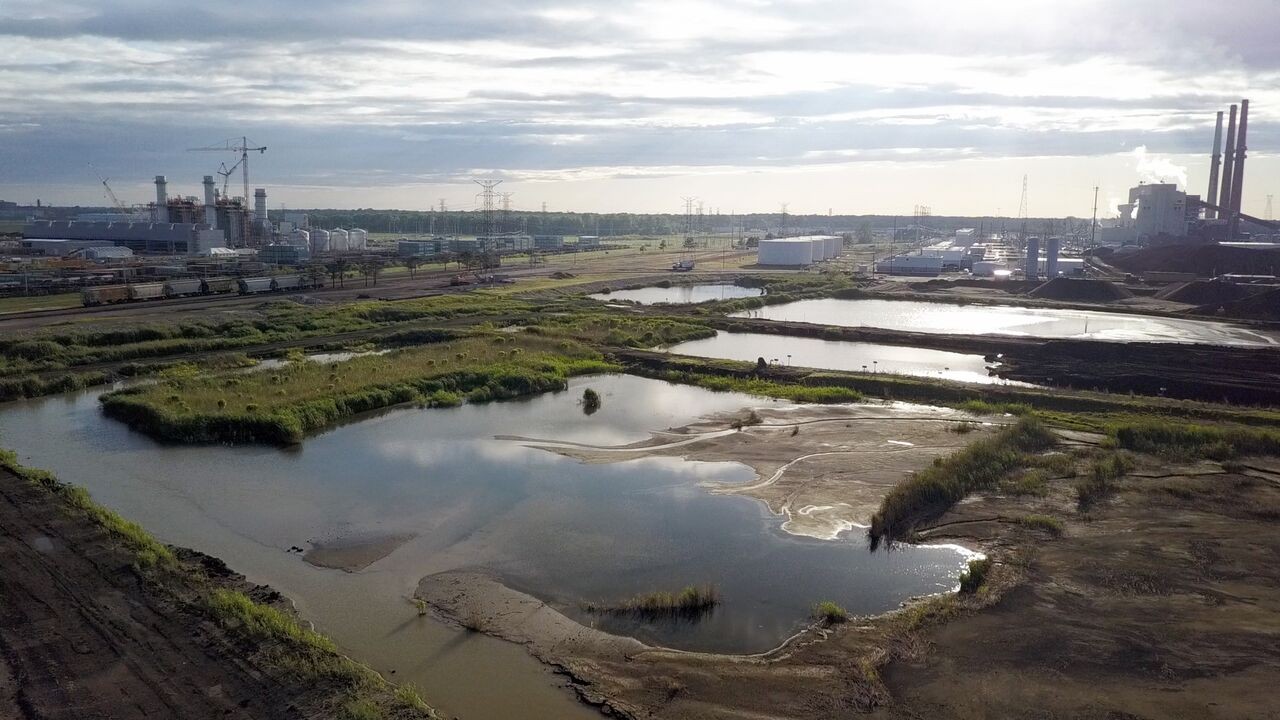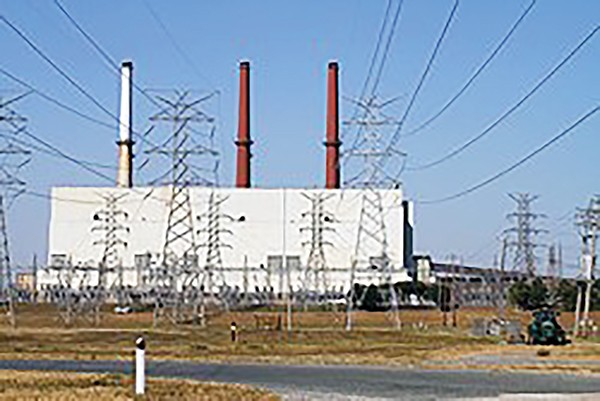
High levels of arsenic and other toxins have been discovered in ground water beneath monitoring wells near the Allen Fossil Plant in south Memphis. According to the TVA, which first reported the levels to Tennessee Department of Environment and Conservation department in mid-May, arsenic levels were more than 300 times higher than federal drinking water standards. Lead levels in the water were also higher than federal safety standards. The pools were originally installed to monitor pollution from nearby ponds containing slag and ash generated by the plant’s coal-burning.
The TVA’s old Allen coal plant
The polluted groundwater is little more than a quarter mile from five recently drilled TVA wells that will provide cooling water for the agency’s soon-to-be-completed gas-fired power plant. While TDEC officials contend that the polluted groundwater is constrained from contaminating the Memphis Sand Aquifer by a layer of clay, local Sierra Club spokesman Scott Banbury begs to differ.
Here is a statement from the Sierra Club:
The Tennessee Valley Authority has found high levels of arsenic,
lead, and other toxins in groundwater beneath the Allen Fossil Plant, where thousands
of tons of coal ash and boiler slag are stored in massive ponds.
The arsenic was discovered in monitoring wells at the plant at levels more than 300
times the federal drinking-water standard. Excessive amounts of lead were also
detected.
Scientists have linked long-term arsenic exposure to health problems including heart
disease, diabetes and several cancers. Exposure to high lead levels can severely
damage the brain and kidneys in adults or children, and can also be fatal.
The tainted groundwater was found about a quarter-mile from where TVA recently
drilled five wells into the Memphis Sand aquifer, the primary source of local drinking
water. TVA plans to draw 3.5 million gallons a day from the aquifer to cool its gas plant,
though their original plan was to cool the plant with “grey water” from the nearby
Maxson Wastewater Treatment facility.
Tennessee Department of Environment and Conservation officials said they don’t think
the arsenic and lead are impacting drinking water, but have asked the Memphis Light,
Gas and Water to test samples anyway.
 Justin Fox Burks
Justin Fox Burks
Scott Banbury (file photo)
In response to the findings, Scott Banbury, conservation program coordinator for
the Sierra Club in Tennessee, released the following statement:
“This contamination is exactly what we feared when TVA decided to use our pristine
drinking water source to cool its fracked gas plant. We still don’t have enough
information about existing breaches of the clay barrier that protects the aquifer, or about
whether pumping from these wells could pull contaminants into the Memphis Sand
Aquifer.
“TVA should immediately contract with MLGW to use municipal water to cool their new
plant, or reconsider their original plan to use grey water, and should contract with the
University of Memphis Center for Applied Earth Science and Engineering Research to
do an extensive geophysical study of the area around TVA’s ash ponds to make sure
there’s absolutely no risk to the drinking water and public health of Memphis families
and children.
“We also call on the Shelby County Health Department to immediately reconsider their
decision to issue TVA’s well permits in light of this new data.”
Ward Archer, president of Protect Our Aquifer, also weighed in on the findings:
“We suspected the groundwater beneath the Allen plant was already contaminated, but
this is even worse than we had imagined. TVA’s plan to pump Memphis Sand Aquifer
water from beneath this contaminated site is irresponsible and endangers our drinking
water supply.
“These contamination findings reinforce our commitment to encourage TVA to find an
alternative cooling water solution, and we will continue to work to protect our drinking
water aquifer by supporting scientific investigation, raising public awareness, working
with our elected officials, and, when necessary, initiating legal action.”